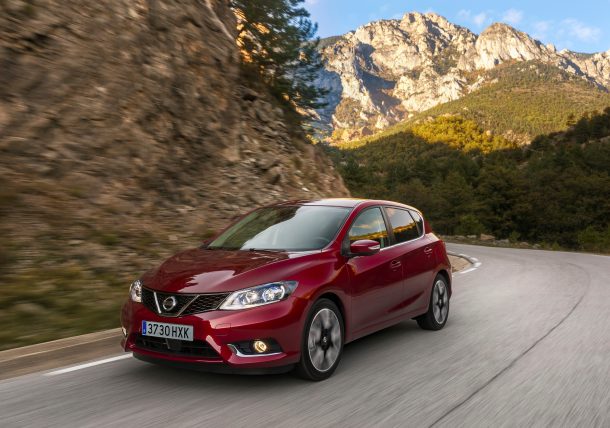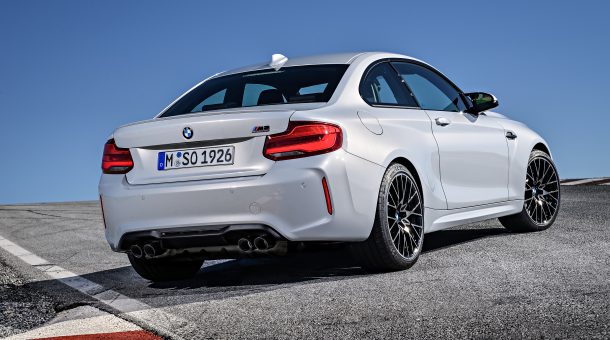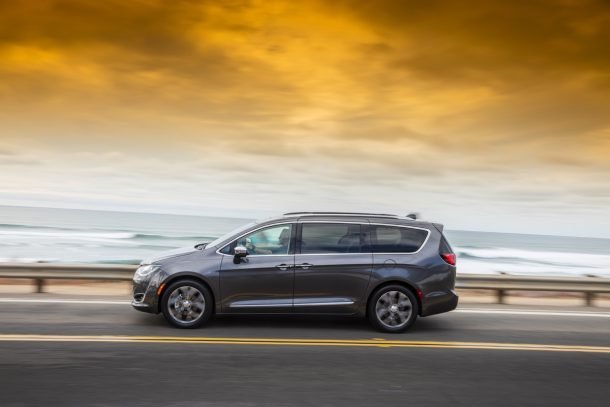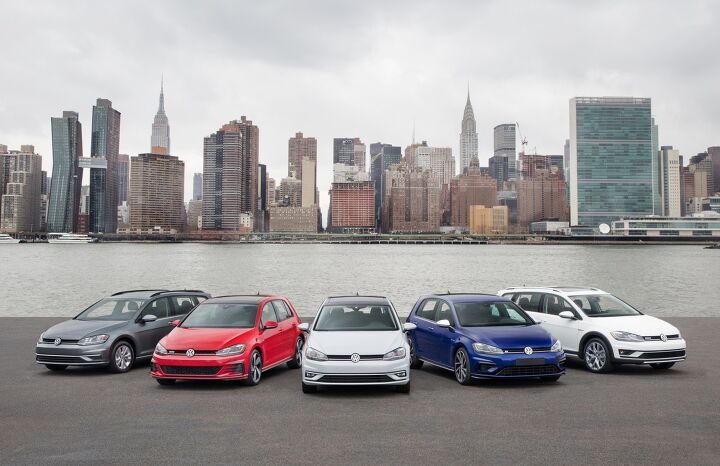#Sales
Crossover Takeover: Nissan's Compact Cars Leave Europe Indefinitely
Nissan is ending sales of its last two compact cars in Europe and Russia, citing a the growing demand for crossover vehicles as the reason. The automaker stopped producing the Pulsar hatchback for Europe in June and says it will end production of the Almera sedan in Russia later this year. Both models are the sister car to our own Nissan Sentra.
The Pulsar was launched in 2014 to give Nissan a fighter for the competitive compact-featherweight category and fill a gap left in the brand’s European range in the wake of the discontinued N16 Almera. Unfortunately, it hasn’t been the sales success Nissan hoped for. The Pulsar never quite managed to match the N16’s volume. Nissan’s decision to abandon it leaves the Leaf EV as the only non-utility compact sold by the manufacturer in the region.
Are We Witnessing the Beginning of Hyundai's Recovery?
“Now this is not the end. It is not even the beginning of the end. But it is, perhaps, the end of the beginning.”
Former British PM Winston Churchill used this somewhat confusing quote to describe the status of the war following the defeat of Axis forces in North Africa, and it popped into my head while scanning Hyundai’s U.S. sales data for the month of August.
The sales slump experienced by a once-skyrocketing Hyundai is well covered. Last year was a grim one for the brand, as a combination of falling passenger car sales and not enough crossovers saw the automaker’s U.S. fortunes tumble. Since then, Hyundai’s been on a new or refreshed model tear, and it’s not over yet. Has the automaker’s recovery seen the end of the beginning?
As Inventory Dwindles, Genesis Prepares to Turn It On Again
If you noticed your neighbor adding a glistening new Genesis model (the midsized one or the bigger one) to their driveway in the past month, you’re a member of a very small group.
Genesis, the luxury marque born of Hyundai, didn’t sell many vehicles in August, but that’s all part of the plan. The brand’s executive director claims there’s less than a month’s worth of vehicles currently in the U.S., but once those ships arrive, look out. Actually, a better way of phrasing that is: “prepare yourself for things to occur in a gradual and measured fashion.”
The Nissan Kicks Is - Unsurprisingly - Performing Much Better North of the Border
Not concerned with offering all-wheel drive, Nissan’s recently launched Kicks subcompact knows its ground clearance, styling, and low, low entry price is what customers will take notice of, not its perceived off-road prowess. It doesn’t have any (though on dry and flat boulder-free trails, it would probably do fine).
After Nissan unveiled its pricing in the U.S. and Canada, we noticed that the normal north-of-the-border markup was missing in action. As a result, buying a base Kicks S in Canada is just eight bucks pricier than an American purchase ($17,998 vs. $17,990). Both Canada and the U.S. love their big trucks, I said at the time, but this little ute will do better north of the border.
It’s always nice to be proven right.
With Rising Sales and Two Crossovers on the Way, Volkswagen of America Can Probably Breathe Easy
The diesel emissions scandal that continues swirling around Volkswagen’s German workforce is merely a far-off cloud for the folks at Volkswagen of America. Sunny skies reign, thanks to a decision to go heavy into “Americanized” crossovers.
Sure, the Jetta and Golf families continued their downward trajectory, joined in the descent by VW’s Passat sedan, but those lost sales are more than made up for by two nameplates: Tiguan and Atlas. Break out the iced tea.
Die Rivalitt: BMW Ekes Out Another Sales Win Over Mercedes-Benz
Without rivalry, there wouldn’t be sports, and the Atlantic Ocean probably would have been crossed for the first time by a multinational team assembled sometime in the late 1930s, backed by a top-heavy bureaucracy.
Rivalry, at least outside the workplace, is usually fun, and the fierce competition among Germany’s luxury marques remains an interesting one, simply due to the length of time this has been going on. U.S. sales figures from August show that Mercedes-Benz, which muscled out long-running best-seller BMW from its lofty perch in 2016, has at least some reason to be worried about its rival reclaiming lost ground.
Fiat Chrysler Heads in Different Sales Directions North and South of the Border, But We Can All Agree on Jeep (or Can We?)
Without its juggernaut Jeep division, Fiat Chrysler would find itself in deep trouble. We’re talking Mitsubishi, circa 2013, sorts of trouble. On a year-to-date basis, all of FCA’s brands save for Jeep and the low-volume, niche Alfa Romeo took a sales tumble in the United States. It’s the same story north of the border.
In both countries, Jeep is FCA’s knight in shining armor (coming to its financial rescue), only in Canada it’s not enough to boost flagging year-over-year sales. FCA’s volume sank 10 percent in August, while in the U.S. it rose 10 percent. Year to date, FCA’s up 5 percent in the U.S. and down 14 percent in the Great White North.
Why such a disparity between sales directions? It seems to come down, at least partly, to Jeep posting far greater gains in the U.S. than in Canada. Even within the division, there’s quite a difference between what buyers in both countries want.
U.S. Auto Sales: SUVs and Trucks Ruled the Roost in August
For marques flush with crossovers, SUVs, and trucks, August held some pleasant news. Any company whose portfolio is devoid of product (or filled with aging machinery) in those segments found their balance sheet wanting.
Evidence of this? SUV-anemic brands such as Genesis are falling off the proverbial cliff while Subaru is outselling the likes of Hyundai and the entirety of VW Group. It’s also worth noting that without Jeep, Fiat Chrysler’s fortunes would be markedly different this year.
Tipping the Sales Scales: Honda's Light Trucks Continue Filling the Hole Left by Cars
It’s nothing new in the industry, nor is it at all uncommon, but Honda’s distinctly balanced product mix continues to tip ever further towards the trucks and SUV side, despite the assertion of American Honda’s assistant VP of sales, Ray Mikiciuk, that cars will continue as the brand’s mainstay.
With the same number of selling days as August 2017, last month showed the automaker’s volume on the upswing, propelled by the strength of light truck sales. In keeping with the theme of balance, only one mainstream car saw its sales increase, year over year, while only one light truck model saw its sales decrease.
Do You Have to Let It Linger? Dealers Struggle With Old Stock During a Season of Renewal
Spring might be a time of renewal, but fall is generally when old gives way to new on dealer lots. Not necessarily, though. If the “new” 2017 Fiat 124 Spider I recently spotted against a backdrop of 2018 Ram 1500s on my local FCA lot is any indicator, some brands have a tough time turning over a new leaf, so to speak. (Fiat’s problem is especially grim compared to other brands.)
Bloated inventories, scattered new model introductions, and a fickle buying public have made “new car season” less apparent than ever, and the problem seems to be growing worse.
A Tenuous Balance: Honda's Still Bullish on Cars, but Even Segment Leaders Have Weaknesses
While the Ford F-150 will likely still be America’s top-selling vehicle when each of us dies a natural death, the entries below it will surely be subject to change. In the near future, at least, expect to see passenger cars sink further down the best-seller list.
Last year, Honda — a manufacturer with a fairly even car/light truck split — showed up three times on the U.S. Top Ten list: in seventh, eighth, and ninth place, with the compact CR-V leading the way, followed by Civic and Accord. This year’s sales haven’t been as kind to the Accord as it has its segment rival, the Toyota Camry, but at least the Civic’s almost holding its own.
Publicly, Honda remains optimistic about the continuation of cars, claiming they’ll remain its primary focus. Unfortunately, even for models that seemingly can do no wrong, there’s danger signs aplenty.
Desperately Seeking Sales: Jaguar's SUVs Are Not Keeping Volume Steady
For a builder of sexy vehicles with an enviable heritage, Jaguar always seems to be in a state of semi-crisis. From past reliability issues to a combination of aging and lackluster products under Ford’s oversight, the storied British brand was then cast off like a pair of trousers at Lover’s Lane, only to see its fortunes rise after its purchase by India’s Tata Motors. Cash poured in and product development ramped up.
When the sport/luxury F-Pace SUV arrived in 2016, Jaguar’s volume saw a corresponding boost, helping squash another threat: the rapidly growing hatred of sedans by a voraciously pro-utility American public. But you know what they say about things that go up…
Hyundai Prepared to Juice Elantra GT Sales, Without Adding Extra Juice
Hyundai’s Elantra GT is an oft-overlooked compact hatch, muscled aside by Honda’s compact king Civic, the handling (and snob) appeal of Volkswagen’s Golf and GTI, and further threatened by the impending release of a Toyota Corolla hatch that doesn’t suck.
Still, it remains a compelling vehicle with a pleasing design and an available Sport variant. All well and good, but the shrinking compact car segment means competition grows fiercer by the year. Having just refreshed Elantra sedan for 2019, Hyundai wants more eyes on the Elantra GT. It has a plan.
America's Minivan Market Still Hasn't Reached the Bottom of the Barrel, But It's Nearly There
Let’s not kid ourselves. American demand for minivans is still shrinking. In fact, July sales in particular tumbled as three of the four top-selling minivan nameplates – a trio that accounts for nearly three-quarters of the sector’s volume – combined to lose more than 5,400 sales, year-over-year.
But set aside all of that negativity for just a moment and consider the segment in a more historical context. After more than a decade of collapsing demand, in which minivan volume plunged 54 percent between 2005 and 2015, the first seven months of 2018 reveal a hardy bunch of remaining stalwarts that have very nearly levelled off on an acceptable grade.
2018 is nevertheless on track to be the worst year for U.S. minivan volume since the recession. In this case, however, “worst” is beginning to sound like too strong of a word.
America's Brief Infatuation With The Volkswagen Golf Is Fizzling Fast
Midst the turmoil of a diesel emissions scandal and the crisis that followed in late 2015, there was a quiet but striking development inside Volkswagen’s U.S. showrooms.
Americans were buying Golfs. A lot of Golfs. More Golfs than at any point since Ronald Reagan was president. Volkswagen Golf volume nearly doubled, year-over-year, in 2015, and Volkswagen nearly sustained that level in 2016 before rising to a 31-year high of 68,978 sales in 2017.
A trend it was not. Seven months into 2018, Golf sales are nosediving.






























Recent Comments